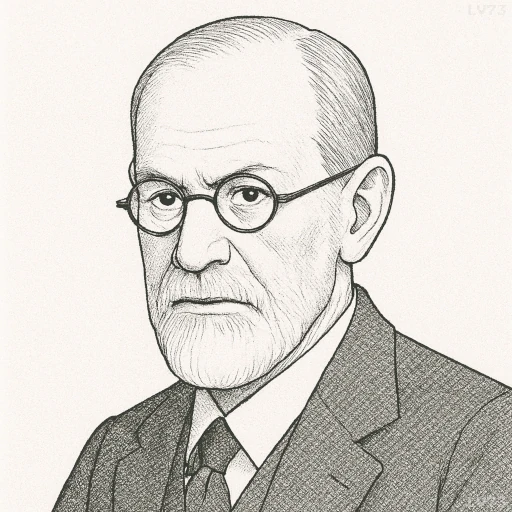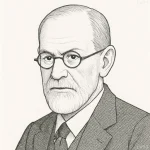“Like the physical, the psychical is not necessarily in reality what it appears to us to be.”

- May 6, 1856 – September 23, 1939
- Austrian
- Neurologist, Founder of Psychoanalysis
table of contents
Quote
“Like the physical, the psychical is not necessarily in reality what it appears to us to be.”
Explanation
Freud draws a profound parallel between the physical world and the psychological (or psychical) world, emphasizing that appearances can be misleading in both realms. Just as scientific inquiry has revealed that physical phenomena—such as motion, matter, or light—often defy our everyday perceptions, so too does the mind harbor layers of unconscious meaning that are not immediately visible or rational. In essence, Freud is affirming that what we think we know about our own thoughts and feelings may be an illusion.
This idea is central to Freud’s psychoanalytic theory. He proposed that much of human behavior is driven by unconscious forces—repressed desires, unresolved conflicts, and instinctual drives—that are masked or distorted in our conscious awareness. Dreams, slips of the tongue, and even neurotic symptoms can appear trivial or nonsensical, but they often conceal deeper truths about the psyche. Just as modern physics requires us to question naive interpretations of sensory data, Freud believed psychoanalysis requires us to probe beneath the surface of mental life.
In the modern world, this insight is echoed in fields such as cognitive psychology, behavioral economics, and neuroscience, all of which demonstrate that human thinking is far from transparent or logical. People often act on impulses or biases they don’t fully understand. Freud’s quote serves as a lasting reminder that introspection alone cannot reveal the full truth, and that understanding the mind—like understanding the universe—requires us to look beyond appearances to uncover hidden structures and causes.
Would you like to share your impressions or related stories about this quote in the comments section?

